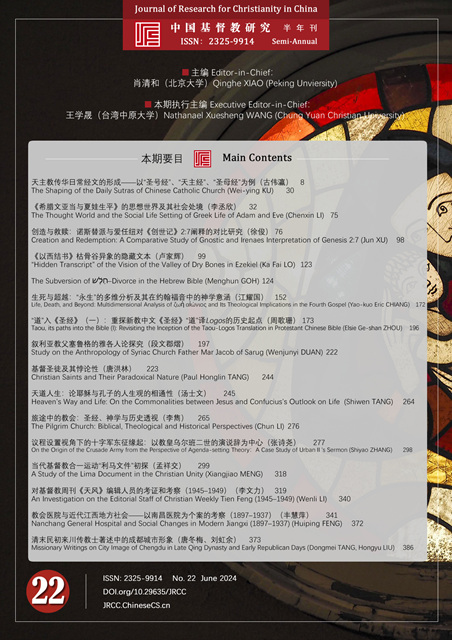Abstract
Genesis 1–3 holds an important position in the interpretation of Christian theology. This research laid out the interpretations of Genesis 2:7 by Ophite and Valentinus, who are Gnostics, as well as by Irenaeus, an early Christian theologian, to explain the differences in their theological systems. The Gnostics believed that the Creator in Genesis 2:7 is not the Supreme god and that he is not omniscient and omnipotent; the human soul can be saved, but the body can never be. By contrast, Irenaeus held that the Creator in Genesis 2:7 is God and that He is omniscient, omnipotent, and benevolent; He created humans in alignment with his own image while giving them free will. Christ then became the Incarnate in the flesh and recapitulated human nature to save mankind, allowing humans’ souls and bodies to be saved with the help of the Holy Spirit. In a way, not only were Irenaeus’ explanations of Genesis 2:7 aimed to refute the Gnostics’ view but they also served as building blocks for a unique theological system. His recapitulation mode affirmed the necessity of Jesus’ Incarnation, while also strengthening the tie between Old Testament and New Testament, making Genesis the evidence of Jesus’ redemption.

This work is licensed under a Creative Commons Attribution-NonCommercial-NoDerivatives 4.0 International License.
Copyright (c) 2024 Journal of Research for Christianity in China

